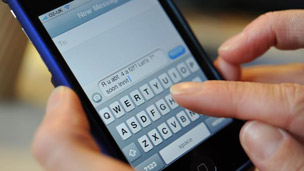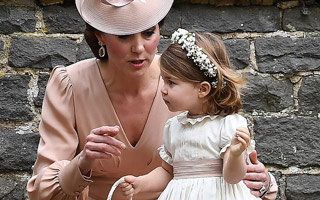
Could text messaging be a thing of the past?
Vocabulary: Sending messages 詞匯:發短信
收聽與下載
If you hear the sound of a handset beeping in a bag or pocket, you could be forgiven for thinking that someone has received a text message. But nowadays there are so many different ways of messaging someone that it could spell the death of the traditional text as we know it.
Text messaging, or texting, is the art of sending a short, electronic message between two mobile phones or tablets. Text bundles formed an integral part of mobile phone monthly plans, with users paying a certain amount to send messages via SMS - short message service. But in the last few years, messaging in this manner has been on the decline.
The rise of smartphones and tablets has seen an increase in the use of instant messaging apps, which offer a cheap alternative to conventional texts. Using wireless internet connections or mobile data networks, people can send limitless numbers of IMs to their friends for very little cost. Unlike traditional mobile texts, the user usually only has to pay to download the app once, after which each message they send is free.
Web developers soon got the message. Instant messaging apps have become popular all over the world. WhatsApp in America and Europe, WeChat in China and KakaoTalk in South Korea are but a few which have attracted hundreds of millions of people, who use the apps to chat to their friends in real time. These apps allow people to send picture messages for free – something which previously was quite costly. Many of these apps also allow users to access a huge range of colourful emoticons and stickers, which are fun ways to help people express their emotions.
Research firm Informa said that almost 19 billion messages were sent per day using chat apps in 2012, compared with 17.6 billion SMS texts. And it expects the chat app market to grow to 50 billion per day by 2014. So does this really mean the end for communication by text?
Pamela Clark-Dickson from Informa doesn't think so. She says that there are a considerable number of people who use normal mobile phones, particularly in developing countries, who prefer the SMS messaging tool: "They don't have mobile data plans, so there is an awfully big base of mobile phone users who are still going to find that SMS is the best messaging experience for them for a while."
Glossary 詞匯表 (點擊單詞收聽發音)
- handset手機
- text message短信
- tablets平板電腦
- bundles(短信)套餐
- monthly plans包月套餐
- SMS短信服務
- smartphones智能手機
- instant messaging即時通信
- apps(計算機、手機)應用程序
- wireless無線的
- mobile data technology手機數據技術
- IM即時消息
- to download下載
- got the message明白,領會含義
- to chat聊天
- in real time及時、實時
- picture messages圖片彩信
- emoticons表情符
- communication交流
- mobile data plans手機流量套餐











